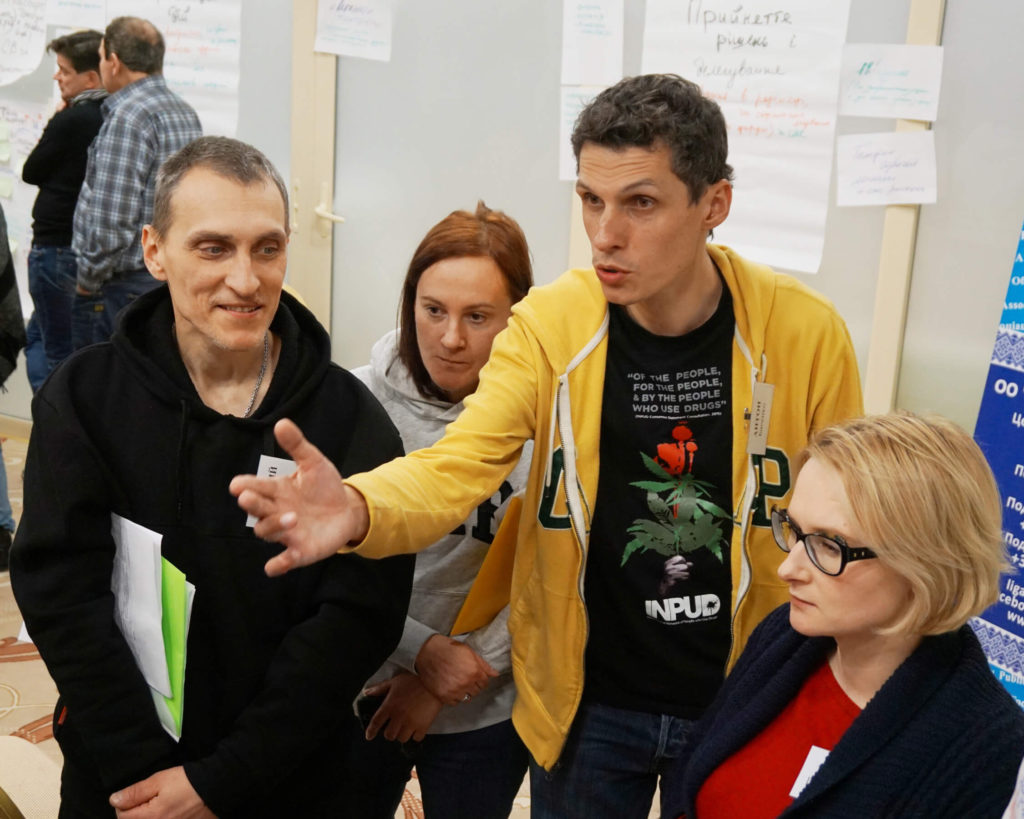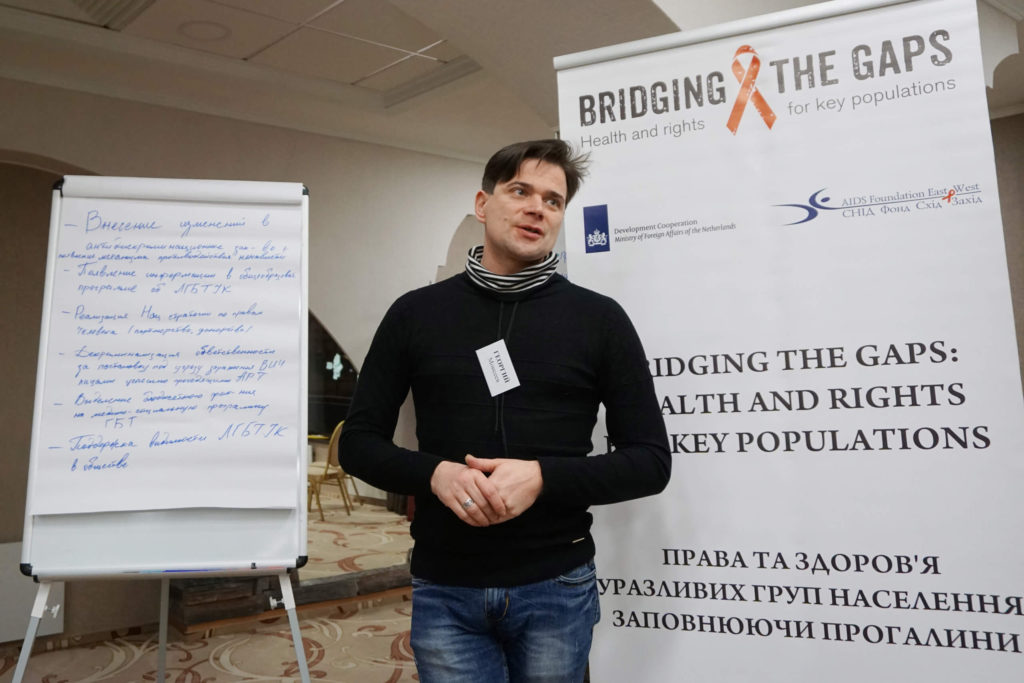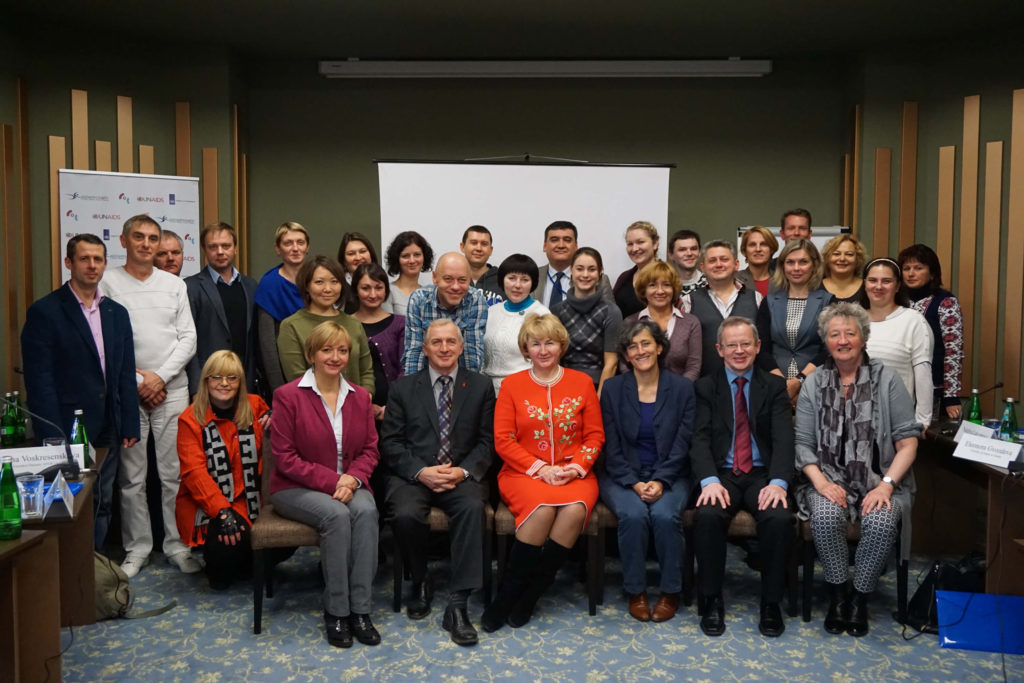Author: AFEW-Ukraine

In many countries, different key populations unite. They do it for the better representation of their interests in the development of public policy. This is often the alliance within one community, and less frequently – of several communities.
Four key populations in Ukraine – ex-prisoners, LGBT, people who use drugs (PUDs), sex workers (SW) – have their own self-organizations, being at different stages of development. There are communities with great experience in advocacy and work with international donors, but there are those that are at the initial stage of development. They grow stronger with the support from more experienced activists.
“Despite growing importance of the community voice in decision-making processes related to access to health and social services, very often representatives of HIV-service organisations speak on behalf of key populations rather than community representatives. Having the voices of community directly heard leads to a situation where the actual needs of key communities are much better taken into account in programs planning and implementation”, says Olena Voskresenska, executive director of ICF “AIDS Foundation East-West” (AFEW-Ukraine).
In October 2015, during the meeting held within the framework of Tripartite cooperation between the Kingdom of the Netherlands, UNAIDS and civil society, community activists expressed the idea of creating a Platform. This Platform had to become an independent structure for sharing experience, dialogue and developing a common position and advocacy messages of several communities, as well as facilitating representation of communities in public bodies, working groups and other organizations. In addition, the Platform could contribute to collecting data on the needs of communities and raising new activists.
“My idea was to give communities the opportunity to advocate for their rights and change policies and to bring communities together to help each other. Also, it was important to allow communities to develop and mobilize themselves without external influence,” recalls Petro Polyantsev, a member of CKPP steering committee.
Creating the Platform
Initially, it was necessary to understand whether all key communities are interested in the Platform. Then the priorities of the Platform had to be identified. In 2016, the most active representatives of the LGBT, SW and PUD communities formed an initiative working group. Participants of the Tripartite cooperation initiative – UNAIDS, ICF “AIDS Foundation East-West” (AFEW-Ukraine) and LGBT Association “LIGA” (partners in the project “Bridging the Gaps: Health and rights for key populations”) – helped to organise group’s work and found the necessary funding for the Organizational Forum of the Country Key Populations Platform (CKPP).

“Today the priority for communities is to maintain access to services in the context of transition to state funding. By working together, communities can achieve much better results than by working just by themselves,” says Andrii Chernyshev, a member of CKPP steering committee.
The first CKPP Forum was held in January 2017. The main result of this event was a decision to establish the Country Platform as an association of key communities’ representatives. During the Forum, also representatives of the community of ex-prisoners joined the Platform.
CKPP was officially registered as a public association in December 2017. The Steering committee, representing all four communities, coordinates the work of the Platform. The main strategic issues are resolved during the CKPP Forums. Funding for Platform activities is provided through the selection of several grant programs managed by the organizations endorsed by the Steering Committee and an Advisory Group. As of today , the work of the Platform has been financially supported by the Ministry of Foreign Affairs of the Netherlands in the framework of the project “Bridging the Gaps: Health and rights for key populations”, UNAIDS, Eurasian Harm Reduction Association (EHRA), International Renaissance Foundation, the Embassy of the Netherlands in Ukraine. Such diverse funding model allows the Platform to remain independent and unbiased.
First steps are successful
The activities of the Platform in the last two years were mainly focused on the development of its structure, as well as the strengthening of the communities. During this period, 163 activists from 18 regions of Ukraine took part in important and interesting events and trainings, the topics of which were determined by the participants. Communities’ members developed CKPP Regulation and the CKPP Code of Ethics which regulates the basic principles of work.

In 2018, members of the Platform presented it at the XI National LGBT Conference in Ukraine and the 22nd International AIDS Conference (AIDS 2018) in the Netherlands.
“I believe in the Country Key Populations Platform. We are already seeing the results. The government is more inclined to listen to us because we gained legitimacy by joining our forces. When people are motivated to make change happen and work together, human rights will be a reality in our country, and not just words. Only together we can save our lives,” says Vielta Parkhomenko, a member of CKPP steering committee.
The researcher Anastasia Bezverkha in the recent study “Country Key Populations Platform – from better communication to stronger voice. The case study from Ukraine” highlighted the positive changes influenced by the creation and work of the Platform.
“CKPP impacted the communication between the partners in the field in a positive way. Key population leaders became more visible and new leaders emerged. In addition, CKPP serves as an important space for communication of national decision-makers with key population leaders,” summarizes Anastasia.
The IV CKPP Forum, which was held in December 2018, was focused on developing the strategies and work plans of the Platform for 2019.



